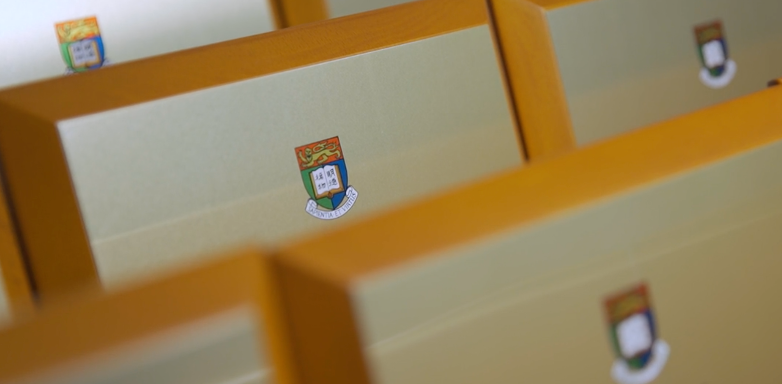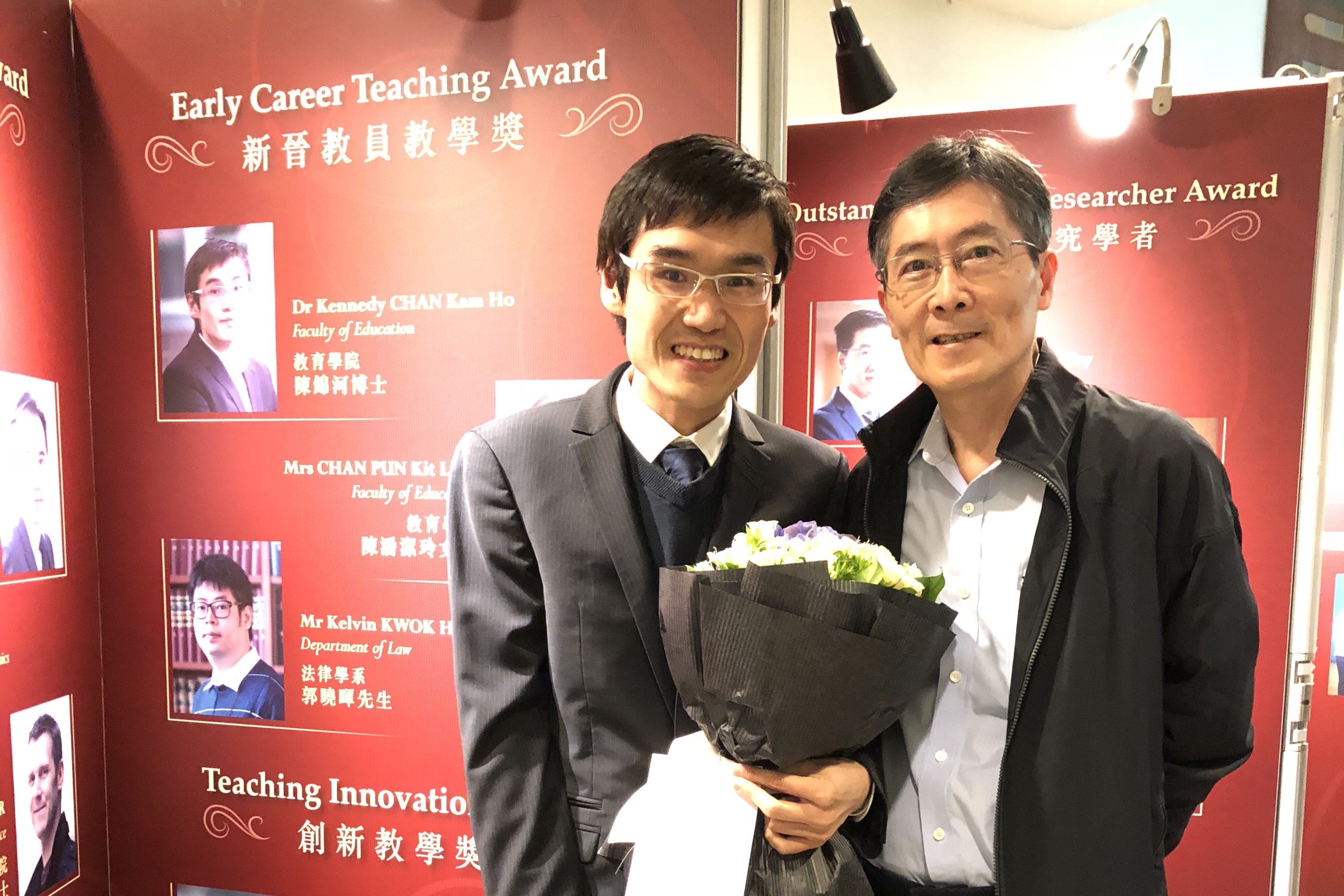

{{'Newsletter' | t}}
Do You See What I See?
– An Alumni Story of Dr. Kennedy Kam Ho Chan, Assistant Professor, Faculty of Education

|
Imagine an older Hong Kong at a time before the MTR extended its octopus-like arms from Kowloon into the developing areas beyond the city. Picture the familiar hustle and bustle, with the surge of shoppers, and the waves of commuters. Do you see what I see? A small boy, heavy schoolbag over his shoulders, skilfully negotiates the crowd: a young Kennedy Chan is on his way home from primary school in Tseung Kwan O.
Dr. Chan was from those early years a strong academic student who followed the scientific path with a particular interest in biology. He graduated with a BSc, but it soon became apparent that his true passion lay in science teaching, and so he pursued a PGDE teaching certificate.
As a practising secondary science teacher, he became fascinated by “the multi-faceted and complex nature of science teaching”. He observed that, “Teaching was an interactive and dialogic process.” He became keen to delve deeper into these ideas and so his interest in uncovering “the secrets of high quality science teaching” became a personal research goal.
Dr. Chan has been an educational researcher remaining at HKU throughout his career to date, which has enabled him to focus fully on his development and understanding of science teacher expertise. He has tremendous respect for his mentor Dr. Benny Yung, who he describes as “an accomplished scholar”. Dr. Chan's doctoral study focused on how biology teachers developed a professional knowledge for teaching a new science topic in the context of curriculum change in Hong Kong.
As a great advocate of research-led teaching, he became aware of the need to observe teachers in action from different perspectives. To do this, he has introduced video-based classroom environments where the innovative technology records teachers and their leaders in action. These 'point of view' cameras capture the act of teaching from all angles, allowing the viewer to see what both students and teachers “see from both sides – do you see what I see?” With dedicated input from Dr. Gaowei Chen, “a very intelligent colleague” and Associate Professor from the same faculty, the classroom data is collated and visualised before being shared for invaluable reflection and analysis.
So, did that young graduate see himself reaching out to scholars in five continents? In his eagerness to exchange knowledge, to broaden his research base, and to contribute to critical international debates, Dr. Chan has worked alongside highly respected academics from establishments such as the University of Melbourne, Durham University, Stanford University, the University of the Witwatersrand, the National Institute of Education, and National Taiwan Normal University, where in 2017 at a local conference he gave the keynote speech on teacher expertise and workshops for Taiwanese in-service teachers.
He has reported his findings in highly respected local and international publications, such as Studies in Science Education, and he is the lead name on the paper most aptly entitled, 'Do you See What I See?' – a close collaboration with a team from three Australian Universities, namely, Monash University, Deakin University, and the University of Melbourne.
Dr. Chan praises HKU for giving him financial support through grants and also for providing an environment where he has the freedom to pursue lines of research, particularly in the emerging field of 'teacher noticing'. He also highlights the efficient support he receives from his Faculty’s administrative staff.
Dr. Chan has won extensive professional recognition. He was invited to the Pedagogical Content Knowledge (PCK) Summit II in 2016 and is one of 26 scholars involved in conceptualising the refined consensus model for PCK.
He has been presented with multiple teaching awards from his Faculty and the University based on different criteria such as student evaluation ratings, teaching portfolios, and student nominations, including the 2017 University Early Career Teaching Award and the Student-Led University Teaching Feedback Award (2017–2018). He was also a 2019 University Grants Committee Teaching Award finalist (Early Career Faculty Members).
Currently, Dr. Chan is working with a local charity organisation, the Bei Shan Tang Foundation. Together with principals, teacher leaders and colleagues from Stanford and Monash Universities their goal is “to empower teacher leaders and teachers to use classroom videos to enhance teacher expertise and student learning”. He thinks that taking a systemic approach is critical as support from colleagues and school administrators is essential to sustain teachers’ ongoing professional learning.
He is also an Executive Committee member of the Community of Practice on 'The Innovation and the Future of STEM Education' of the Hong Kong Teaching Excellence Alliance (HKTEA).
With such a full programme, how does Dr. Chan achieve the work life balance? Quite simply in his own words: “I am very poor at that.”
But perhaps if you are strolling past his building in Kowloon City, you might hear over the rumble of traffic the strains of Faye Wong's unique voice while Dr. Chan’s feet rhythmically pound a running machine. Yes, Dr. Kennedy Chan is winding down so he can stay mentally and physically fit and be ready for his next busy day.
